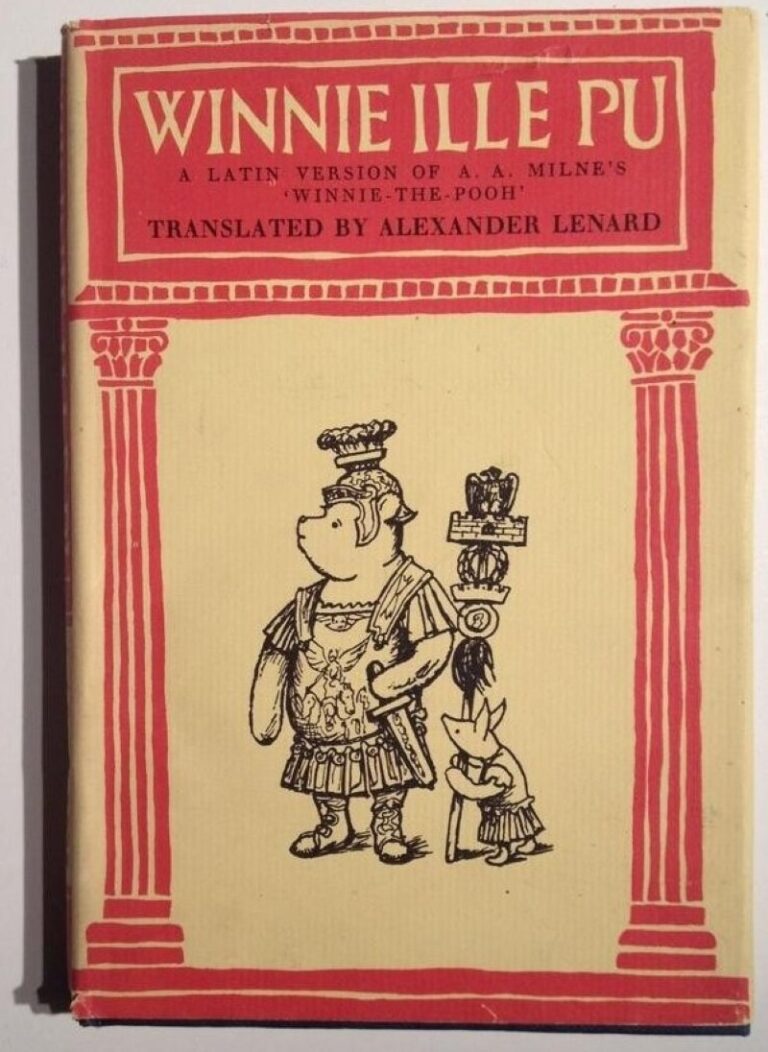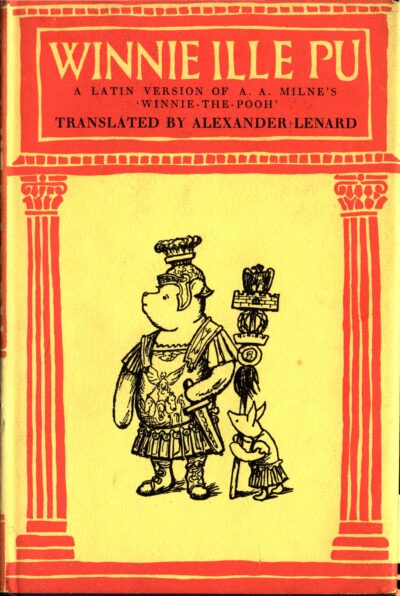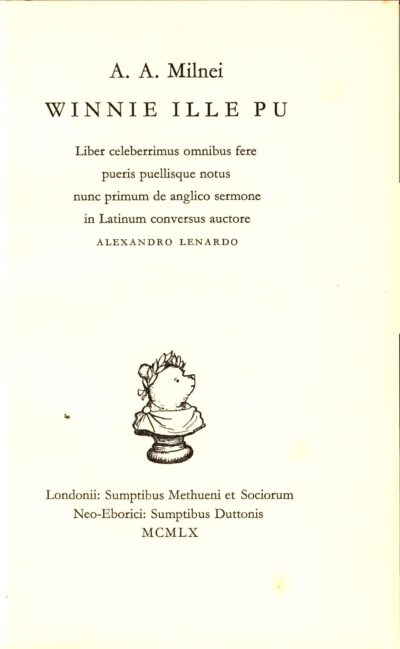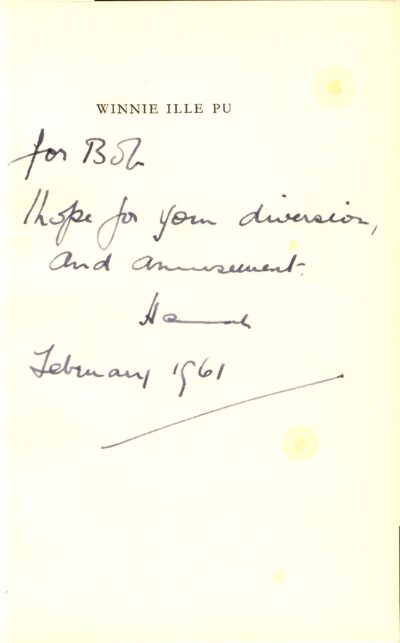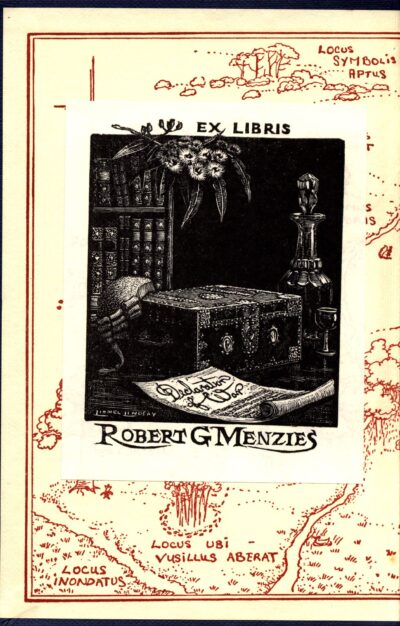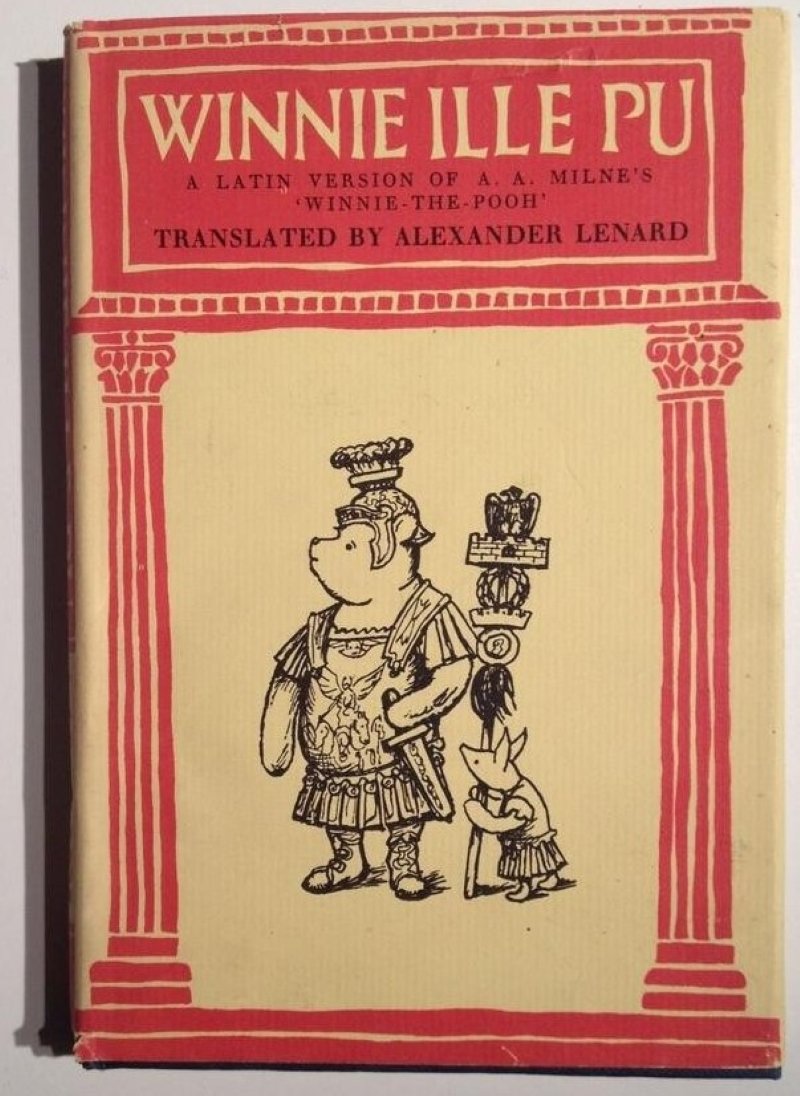Alexander Lenard, Winnie Ille Pu (1960)
The Menzies Collection is a cultural artefact which attests to many short-lived cultural and literary trends, of which Winnie Ille Pu is a classic example.
The book was the brainchild of Hungarian ‘physician, writer, translator, painter, musician, poet and occasional language instructor’ Alexander Lenard. Lenard was living in Austria when it was annexed by Nazi Germany in 1938, and after a failed attempt to enlist in the French army to fight the forces of fascism, he ultimately spent much of the war hiding out in the Vatican Library. There Lenard read all of the Latin books assiduously, such that it became a living language to him.
After the war, Lenard emigrated to Brazil, and found work tutoring the local children in European languages. After seeing that they were drawn to Winnie the Pooh, and that it helped them grasp English much quicker than they otherwise would have, Lenard came up with the idea of translating Winnie the Pooh into Latin so that this same enthusiasm could be utilised to help teach people the dead tongue. Lenard spent 7 years methodically translating the text, with a distinctive grasp of Latin which critics have praised for going beyond the pale imitations of Cicero which tend to characterise modern Latin works. The result was a standout but quite quixotic book, which failed to find a publisher.
Lenard was determined, and decided to self-publish, and the book proved to be an unexpected mass hit. It was subsequently picked up by a range of publishers, and became the first foreign language book to crack the New York Times bestseller list – where it would spend 20 weeks. Lenard was credited with having helped ‘save Latin’, and his worked spawned a number of copy-cat translations of other modern English classics like Alice in Wonderland and Peter Rabbit. This was a trend which had a limited shelf life and which quickly died out, but the strengths of Winnie Ille Pu have seen the book republished several times since the work initially burst onto the scene in 1958.
Menzies’s copy is interesting for two reasons. Firstly, because despite being a brilliantly gifted student who won all sorts of scholarships, Latin was one of the subjects with which Menzies struggled at school. He eventually developed a working knowledge of it as it was necessary for his legal career, but there is some irony in him owning a book initially intended to teach schoolchildren. Menzies lived in a time when it was not entirely unusual for well-educated people to casually drop latin into ordinary conversations, and his memoir The Measure of the Years Menzies recalls a High Court Judge George Rich doing this rather frequently. Secondly, the book was a gift intended for Menzies’s ‘diversion and amusement’ gifted at the height of the 1961 credit squeeze, which would almost see Menzies unexpectedly lose that year’s election. Hence the book provided a helpful dose of levity at a time when Menzies was under considerable stress and strain.
You might also like...
Sign up to our newsletter
Sign up for our monthly newsletter to hear the latest news and receive information about upcoming events.

